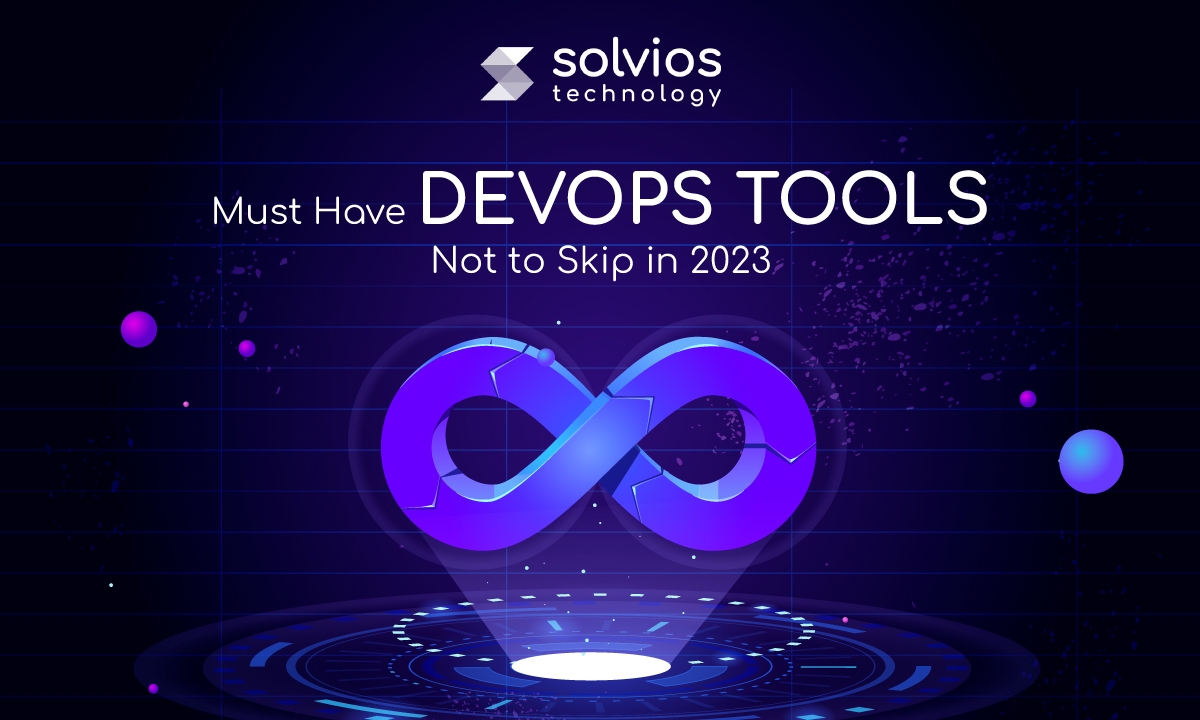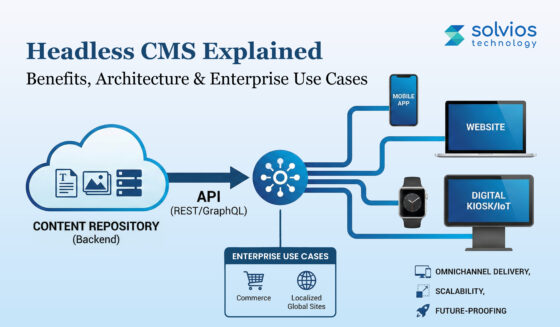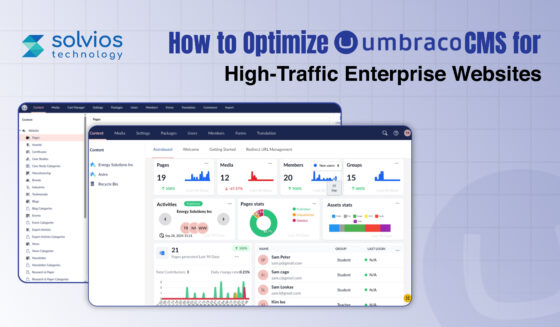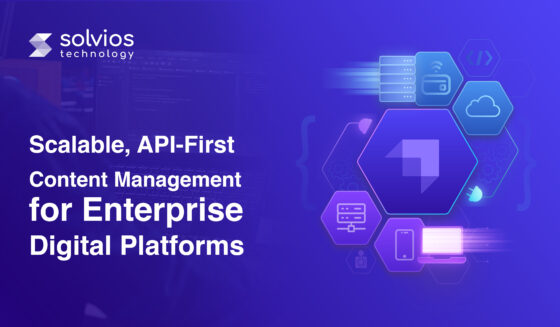
If you are a DevOps professional and looking for DevOps tools for monitoring, here is a comprehensive post to find the various tools and their importance.
Let’s first define what DevOps is and its advantages.
DevOps is a set of practices and tools that automate and incorporate the processes between software and IT groups. It empowers cross-team communication and collaboration through technology and automation.
Businesses using a DevOps model deploy updates more frequently than businesses using traditional software development.
Collaboration and communication are the key cornerstones of DevOps operations. Automation of the software delivery process lays out collaboration by uniting the workflows and functionality of development and operations. Correspondence across developers, operations, and other team members allows organizations to align more closely on projects and goals.
For example, integration and continuous delivery allow DevOps solution providers to deliver quickly and securely. Monitoring helps DevOps groups track the application’s performance so they can respond rapidly to issues.
DevOps practices rely on viable tools to help groups quickly deploy and innovate for their clients. These tools automate manual tasks, assist groups with overseeing complex environments, and keep engineers in charge of the high velocity and great pace of DevOps.
Best Tools to Look for in 2023
1. Slack
Slack, the very first DevOps solution provider is an instant messaging business communication platform acquired by Salesforce. Slack gives different visit choices to people, gatherings, and channels with client-based consent for data sharing among colleagues.
Features:
- Desktop and mobile apps for accessibility.
- Teams can connect via channels and group messages.
- Private messages for 1:1 communication.
- Integrations with Google Calendar and Zoom.
Pricing:
- Available free version
- Pro: $6.67/month
- Business+: $12.50/month
2. Microsoft Team
The Microsoft team is another DevOps solution provider that is your business communication platform, introduced by Microsoft in 2017. The tool offers chat and video conferencing capabilities to interface with DevOps teams.
Features:
- Direct chat between team members for personalized communications.
- Document storage in SharePoint.
- Integrations with other productivity tools.
Pricing:
- Available as free
- Microsoft 365 Business Basic: $5/user/month
- Microsoft 365 Business Standard for $12.50/user/month
3. GitHub
GitHub is a Git-based version control platform and programming repository to store the source code of your product. It was introduced in 2008 and acquired by Microsoft in 2018.
Features:
- Support for 200+ coding languages.
- User-based permissions and reviews to protect source code from unauthorized changes.
- Project documentation.
- Issue boards to support Kanban and Scrum methodologies.
Pricing:
- Available as free
- For Team: $4/user/month
- For Enterprise: $21/user/month
4. Zoom
Zoom is a video conferencing correspondence stage sent off by Zoom Video Communications in 2012. It offers online meetings and virtual events that help various numbers of clients and shows arrangements to keep your team informed.
Features:
- Screen sharing for real-time walkthroughs.
- Meetings for daily team updates.
- Virtual event and webinar.
- Zoom chat option for quick communication across devices.
Pricing:
- Available as free
- Pro version: $14.99/month/license
- Business: $19.99/month/license
- Enterprise for $19.99/month/license
5. GitLab
GitLab is a DevOps platform conveyed as a unified application, essentially changing the way development, security, and operations teams work together and build software. From idea to creation, GitLab assists teams with further improving the development process from weeks to minutes, which in turn reduces development costs and time and increases productivity.
Features:
- Built-in task lists, description templates, and issue management cards for project management.
- Security scans and dynamic testing.
- Integration features are offered in the free plan.
- The Auto DevOps feature is supported in the free plan.
Pricing:
- Available as free
- Premium: $19/user/month
- Ultimate for $99/user/month
6. Bitbucket
Bitbucket Cloud is a Git-based code hosting and collaboration tool built for teams. Bitbucket’sbest-in-class Jira and Trello integrations are designed for professional teams.
The primary advantage of Bitbucket is that it stores the code in one secure spot, leaving it open for all working teams, so they can easily gain access to the code or take it out in light of their work.
Also, you can, without much of a stretch, track all changes and roll back if necessary. As a matter of fact, you can store code as well as the server configuration. Because of the easy web interface, you can explore and look for what you want without any effort.
Features:
- Bitbucket Pipeline tool visualizes the timeline for projects between the various stages of the DevOps lifecycle.
- Integration with Jira and Asana for greater visibility of project status across platforms.
- Unlimited private repositories.
- Access to plugins from the Atlassian marketplace.
Pricing:
- Available as free
- Standard: $3/user/month
- Premium for $6/user/month
7. Test.ai
Test.ai is a set of testing instruments working to automate the testing framework so designers can save time recording as hard copy scripts. Test.ai is the AI-based computerization structure that places you in charge of bots.
Bots can investigate, see, learn, and execute experiments. You can prepare them to run your dreary tests so you can focus on creative and natural-based testing.
Features:
- AI-powered bots build tests with no human effort.
- Testing for every app feature to ensure full functionality on deployment.
- Scalable test execution to thousands of virtual machines or apps
- Visual dashboard to display test results for analysis
Pricing:
Free
8. Selenium
Selenium is an automation tool for testing web applications across different web programming environments (for instance, Chrome, Mozilla Firefox, and Internet Explorer). The apparatus upholds equal test execution with the objective that various tests go against the application all the while, which recovers time during the testing stage.
Features:
- Ease to access
- Simulate multiple browsers and device types.
- Develop and automate test cases using Selenium’s scripting language.
- The open-source approach allows you to review the code.
Pricing:
Free
9. Docker
Docker is a testing tool developed to simulate real-world scenarios with a lightweight container versus dedicated servers that are more resourceful.
Through Docker DevOps, developers pack all pieces of an application, like libraries, and transport them out as a single unit. Package delivery of the application can keep the developer guaranteed with regard to the delivery of the application on time without being worried about the configuration of the platform.
Features:
- Isolated containers so that multiple Docker environments can run concurrently without overlapping.
- Light-weight source code is scalable and efficient.
- Reusable data volumes across environments for simulations.
10. Jira
Jira is an issue-tracking software for bug resolution goals during the deployment stage. The device likewise supports the executives all through the whole DevOps lifecycle, permitting your group to report progress and view undertakings in a single dashboard. It was sent off in 2002 and is owned by Atlassian.
Features:
- Integrations with the Atlassian product suite (Confluence, Bitbucket).
- Incorporations with additional developer tools for more prominent accessibility.
- Custom work processes to fit the necessities of individual groups and activities.
- Project performance measurement to sort out where the additional resources are required.
Pricing:
- Available as free
- Standard: $7.50/user/month
- Premium: $14.50/user/month
Final words
As discussed, these are a few of the Best DevOps tools to be used in 2023. There are several other tools available. Selecting the best tool depends on your specific budget, use case, and tech stack.
If you are still unable to decide which DevOps tool is best suited for your organization, Solvios Technology is a US-based DevOps Consulting Company.
Tags
Related Blog
Want to get started with App Development?
These applications are acquiring enormous prevalence by offering hands-on enterprise mobility solutions for organizations around the globe.
Start A ConversationLatest Blogs
Our Partnerships






















